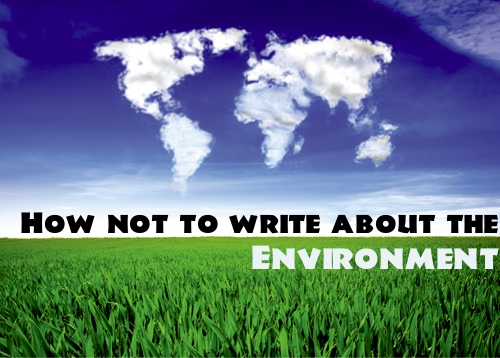Alternative Title: How not to write about the Environment Part 2
Dear Grist, I get you, I really do. We’re on the same team. We both know the science behind climate change, and the importance of educating the public on what its effects will be. I know that an eye-catching headline draws eyeballs, eyeballs that might be able to change minds, I get it. I understand that global average monthly temperatures have been above average for the past 27 years. Climate change is real, and it’s happening at a rate faster than many believe. All of this is true. But it’s also true that with your headline, “If You’re 27 or Younger, You’ve Never Experienced a Colder-Than-Average Month”, you are delivering climate skeptics a win.
The tremendously successful article, which caught the eye of Forbes magazine and the Huffington Post, has been circulating environmental social media and blogosphere since it was published in November. I applaud the authors ability to draw readers in, but there ‘s one problem with the article, one that I feel undoes the good of increased exposure. Quite simply, the headline is a lie, or at best a half-truth. Either way, it’s deceptive, and if environmentalists engage in that kind of deception, then we risk lending credibility to the environmental community’s detractors.
Last June was the 4th warmest June since 1880. It was the warmest June of all-time in the Northern Hemisphere. It was by all accounts an incredibly warm month. However, if you live in Scandinavia, Australia or the northwestern United States your month was below average temperatures. That’s right, a Swedish baby has done what the Grist claims is impossible and lived through a colder than average month. Now before I get comments (psych, I don’t get comments) saying that I misunderstood the article, or that even in the first sentence it states that some places were colder than average, the damage is already done.
The reason? People vastly prefer one-liners over caveats, headlines over articles, and the pithy over the comprehensive. Everyone is going to remember your headline, and no one will remember the disclaimer. And that means that what was once an eye-grabbing headline will provide ammunition to those who would deem us ‘alarmists’. A well-intentioned greeny will throw down this line, trying to get people to understand the severity of the problem we face, and it will be dismissed by the denialist who, for once, will have science on his side. By misleading well-intentioned readers, this article weakens environmentalists’ position as scientists’ best buds. Scientists hate the way their work is portrayed in the mass media because of precisely this type of headline. The science is scary enough. Just report it.

